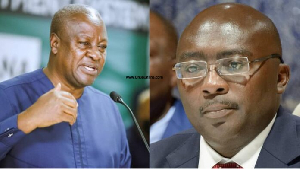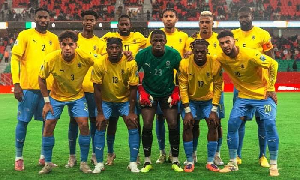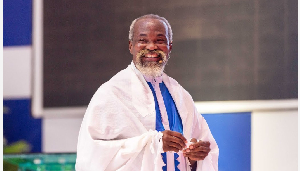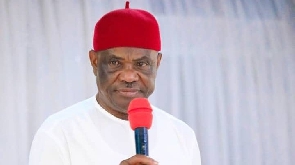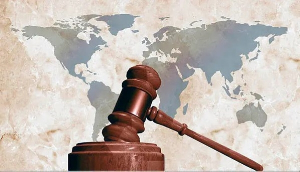In preparation for Ghana’s December 7, 2024 general elections, political parties have laid out their developmental policies and visions in their manifestos, in order to win voters’ support.
This article will undertake a comparative analysis of the manifestos of Ghana’s two major political parties, the main opposition National Democratic Congress (NDC) and the governing New Patriotic Party (NPP), with respect to initiatives or policies they intend to implement in empowering women in Ghana.
Women Empowerment in Ghana
World Vision defines women’s empowerment as promoting women’s sense of self-worth, their ability to determine their own choices, and their right to influence social change for themselves and others.
According to World Bank, while women have experienced high progress in human endowment in health and education than their sub-Saharan peers, women and girls in Ghana, especially in rural areas still lag behind in decision-making, access to assets and earnings.
However, Ghana is about to see positive changes in addressing the inequalities faced by women in these areas following the passage of the Affirmative Action Bill by Parliament on July 30, 2024. The Bill was subsequently assented to by President Nana Addo Dankwa Akufo-Addo on September 19, 2024.
This law aims at promoting gender equality, and women empowerment by addressing systematic barriers that have hindered women in the Ghanaian society.
It promotes active participation of women in public life from a minimum of 30% to 50% by 2030. It further mandates trade unions to ensure gender balanced representation on their executive boards, while private industries which enforces the provisions of this law by employing women would benefit from tax incentives.
Additionally, the law prohibits gender-based stereotyping, verbal attacks, intimidations, hate speeches on employees. Perpetrators of these acts can be fined or face jail terms between six to 12 months.
The primary focus of this article compares the manifestos of NDC and NPP by assessing their level of commitment to empowering women economically and politically.
ECONOMIC EMPOWERMENT FOR WOMEN
The United Nations’ Economic Commission for Africa (UNECA) has highlighted the gender gap in Ghana’s economic sector through its analysis of the gender index.
It revealed that 31.6% of businesses are owned by females while 68.4% are owned by males. Additionally, only 17.85% of women are in paid employment, as compared to 31.15% of men.
NDC’s 2024 manifesto: Economic empowerment of women
The NDC launched its manifesto titled “Resetting Ghana” on August 25, 2024 at the University of Education, Winneba.
The flagbearer John Dramani Mahama addressed challenges faced by the citizens and itemized how the NDC intends to develop various sectors including the economy, health, education, agriculture, good governance, sports, creative arts and tourism, among others.
The NDC’s manifesto, particularly the sector on Gender, Social Protection and Inclusion outlined several initiatives and policies the NDC intends to implement for the better improvement of the lives of women, children, and people living with disability.
In terms of economic empowerment of women, the NDC proposes the following;
•The Women’s Development Bank Programme: This initiative will offer loans with low interest rates to businesses owned and led by women, in order to enhance the economic empowerment of women in the country.
•The Market Enhancement Programme is another special initiative proposed by the NDC. Businesswomen will have access to lands around government business enclaves to establish their businesses and ensure that stores at markets will be primarily owned by women.
•Also, women will be assisted financially to acquire agricultural resources such as land, among others through the “Women in Agriculture” Programme in order to empower and motivate women in that sector.
•Additionally, the NDC has pledged to foster the economic empowerment of women and women living with disability through entrepreneurship. The establishment of an “Entrepreneurship Development” Programme will train women in skill development in order to enhance their participation in the business sector.
•Aside from these, the expanded financial inclusion programme will be launched to encourage saving, investment and pension uptake responding to peculiar needs of women and vulnerable group.
These are the special programs proposed by the NDC in its 2024 manifesto, aimed at empowering women economically.
NPP’s manifesto: Economic Empowerment
The NPP launched its manifesto titled “Selfless Leadership, Bold Solutions for Jobs and Business” on August 4, 2024, in Takoradi at the Ghana Secondary and Tertiary School (GSTS).
The flagbearer of the party, Dr. Mahamudu Bawumia, addressed the challenges faced by Ghanaians and highlighted the achievements of the Akufo-Addo-Bawumia administration and further outlined his developmental policies if voted into power on December 7.
In the manifesto, he proposed policies on how to create jobs, build Ghana into a world-class digital economy, reduce cost of living, implement wide-ranging tax reforms, among others.
More importantly, he outlined plans on how to empower women economically.
The flagbearer Dr. Bawumia indicated that when voted into power, his administration will establish a Women’s Trade Empowerment Fund (WoTEF) to support women-owned businesses.
This initiative will help empower women to access capital such as loans with low-interest rates, among others to economically empower women to become financially independent and expand their businesses.
Additionally, the NPP assured citizens of the full implementation of the Affirmative Action law when voted into power, it will help women in the economic sector as business entities will be enticed to employ more women or appoint them in higher positions in order to enjoy tax incentives, as mandated by law.
POLITICAL EMPOWERMENT OF WOMEN IN GHANA
Ghana has a population of 34 million with 55.7% under the age of 25 years while women represent 51.7% of this population.
However, very few Ghanaian women participate in decision making process in the country. Current data reveal that 15.7% of women hold ministerial position while 14.6% of them are in Ghana’s parliament. At the local assembly level, less than 5% of women are representatives (United Nations Economic Commission for Africa, 2024).
The low representation of women in Ghana as noted by UNDP Ghana, is often characterized by factors such as gender-based violence, high cost of doing politics, lack of political will by parties to support women, among others.
NDC’S 2024 Manifesto: Political Empowerment for Women
The NDC aims at promoting gender parity at the decision-making process level by implementing some policies;
It pledges to implement the Affirmative Action law, and by so doing, increase women’s participation in public life from a minimum of 30% to 50% which is a key objective under the law.
Implementing the law under their administration also means that major barriers preventing women of Ghana from participating in decision making processes will be fully addressed.
Additionally, the NDC has pledged to establish a Gender Equity Committee and resource it to ensure effective exercise of its mandate and accountability. It has also promised to implement a quota system which requires a minimum of 30% quota political appointments for women.
NPP’s 2024 Manifesto: Political Empowerment for Women
The NPP has, as stated above also pledged to implement the Affirmative Action law and furthermore, proposed to pursue a “Women in Diplomacy” Programme for Ghanaian women to take more leadership roles in organizations.
ANALYSIS
It is important to applaud the NDC and NPP for recognizing the need to address gender inequality in the economic and political sectors in their manifestos.
The economic empowerment of women through the establishments of the Women’s Development Bank Programme by NDC and the Women’s Trade Empowerment Fund (WoTEF) by NPP are solid initiatives that would address the lack of capital for business startup, which is a major barrier for women entrepreneurs.
These initiatives will not only provide financial resources for businesswomen to expand their businesses, it will boost Ghana’s economic sector by promoting higher female participation in the business sector.
Furthermore, both parties have pledged their commitment to implementing the Affirmative Action law, which is a step in the right direction.
However, achieving gender parity is beyond mere political appointment of women in political offices.
It is important to address major factors hindering low participation of women in politics which include high cost of doing politics and low capacity building training of women in politics.
At the local level, the parties can initiate trainings for women in the area of political communication, public speaking skills, awareness creation of their basic rights in order to encourage them to contest elections, be it at the assembly and parliamentary levels.
Also, similar policies like the women’s development bank or the women’s trade empowerment fund could also be initiated and implemented in the political sector by both parties to encourage women to confidently contest for electoral positions without fear of financial constraints.
Moreover, there is a lack of specificity in the promises made by both parties to increase political appointments for women.
For instance, what percentage of substantive ministerial positions as opposed to deputy positions will be given to women? This is crucial because, appointment a greater number of women to secondary roles, will reinforce society stereotypes that women are not capable of holding major leadership positions.
In conclusion, both parties have demonstrated fair commitments to empower women economically and politically. However, they could be more specific in some of their proposed policies on how to address major barriers that put women at disadvantage, especially in the political sector.
Opinions of Thursday, 17 October 2024
Columnist: Asana Abukari

